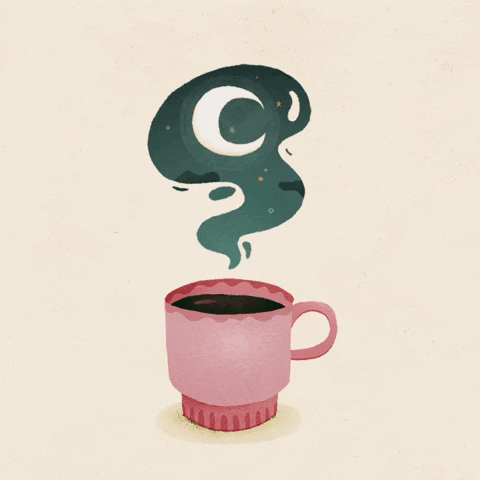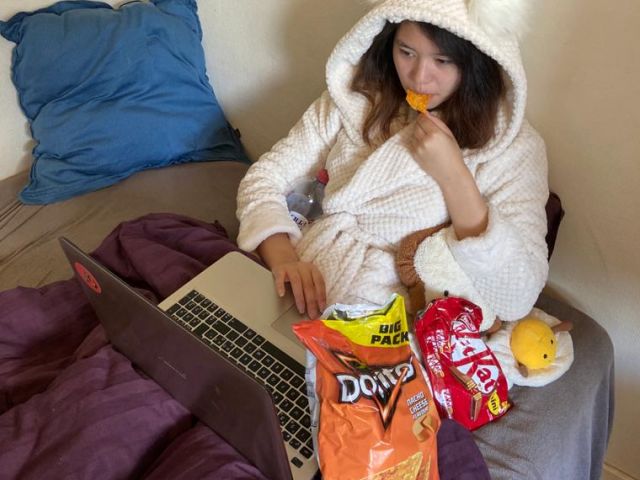It’s the Little Things That Matter: 4 Key Habits to Help You Thrive

Starting a new chapter can be exciting, whether it’s a new semester at University, the first day at a new job or even a new partner. It can also be a bit of a whirlwind, and getting swept up in it can mean that some things in life fall by the wayside.
For me, my daily routine suffered. Whether I was going back to university after the holidays, or starting a new internship, I let all my good habits and small rituals just slip away.
At first it didn’t really matter, but little by little I started to feel less like myself until one day, I just felt completely detached from who I was. I thought that those little things didn’t matter, but actually they were what kept me grounded the most. So if you feel like you’re stuck in a rut, or despondent and detached from your life but can’t figure out why, then keep reading.
Hopefully my tips can get you started on reconnecting with yourself.
Keep it fresh, switch it up
Just because you work the same hours, day in, day out, doesn’t mean that the rest of your life needs to follow that same pattern! It can be as simple as taking a different route to work or visiting a new part of town on a day off. It might not seem like much, but it can make life feel a little less routine and more spontaneous.
Who knows, you might even start finding new places you never knew existed but want to keep coming back to.
Treat yourself regularly
If a friend were feeling low because of a conflict with their boss, or just suffering from the winter blues, we’d get them a coffee or their favourite pastry from a local bakery to cheer them up next time we saw them, right?
Well, we should treat ourselves in the same way! Often when we get caught up in our personal lives, selfcare is one of the first things to get left behind. I completely underestimated the power of a homemade hot chocolate (made with fancy cocoa powder I got as a present), candles and enjoying a good movie under a blanket until recently.
Now, I’ve made it a regular ritual. Not only do I wake up happy the next day, but I feel so much more productive, too. So please, whether it’s a cinnamon roll with extra icing from an expensive bakery that you walk past every day, or a bunch of flowers from a local market, just do it!
You deserve it, on a good or bad day.
When in doubt, walk it out
I learnt the power of this little trick from someone very close to me. Whenever I let my emotions get the better of me to the point where I could do nothing but sit and let my thoughts run laps around my brain, he’d take me out for a walk. At first, I thought it was stupid.
How could walking around my neighbourhood possibly change anything? Surely it’s just a waste of time. Yet somehow, every time I got back home, I couldn’t even really remember what I was so upset about, or why, and could start going about my day again.
It helps to have someone walking alongside you to chat with, but going it alone is still effective, too.

Listen to yourself, beat the FOMO
In the modern age, where it has become normal to show everyone what meal you’re having, with whom, and at which trendy new place in town, we can often fall into the trap of doing things ‘because it looks good on my feed’ and not because we actually want to do them.
Maybe you were super excited about a birthday party you’ve been invited to, or having drinks at a cool bar before heading to Nexus, but now that the day has arrived, you just don’t want to go anymore.
Yet, you still feel obligated to go because staying at home sounds boring or lame or you don’t want to know your friends are having fun without you.
Believe me, I’ve fallen into this trap many, many times. I’ve gone out for a big meal with friends even though I was anxious about how much money I’d spent that month, or attended a party because everyone I knew was going and had been talking about it for weeks.
FOMO or ‘fear of missing out’ is very real and it makes us do things that we, deep down, don’t actually want to do. In my opinion, it’s not a healthy mindset to be in and it’s really not helpful for your wellbeing in the long run.
The way to combat this feeling is to listen to yourself, and what YOU really want. And not only that; but also not be ashamed of what you want.
The ups and downs of ordinary life happen in between the plans we make with others. Wanting a quiet night in after an unexpectedly long day, or time to yourself to reflect on some bad feedback you’ve received from university or work, or even not wanting to go out because of a storm are all examples of perfectly valid reasons to cancel plans and spend time on your own.
I’ve taken my exchange semester in Denmark as a chance to implement this, and it’s really done wonders for my mood and keeping myself balanced.
Sometimes I’ll have plans almost every single day of the week that I’m excited about, other times I’ll cancel those plans because I’m not feeling up to being social. Your good friends will understand, but just remember to reschedule afterwards!
Combining all these tips together has made me happier and more productive than I have ever been before. But beyond that, it’s taught me self-acceptance, too.
There’s no point in pushing yourself to keep on working at something without taking a break. There’s no race to complete all your assignments or your to-do list, as long as you meet your deadlines. And there’s no sense in treating yourself worse than you treat your friends and family.
In fact, I believe that by taking better care of myself and spending more time being me and not who I feel I should be to be ‘cool’, I’m in a better position to be a good friend, colleague and partner.
So, I challenge you to incorporate at least one of my tips into your regular life and see what happens.





































































































































Hi Natalie,
thanks for a super well written and inspiring article!
It got me thinking about an article I read today called “Resilience Is About How You Recharge, Not How You Endure” from HBR. Check it out if you are interesting in a further perspective on recharging your battery 🙂